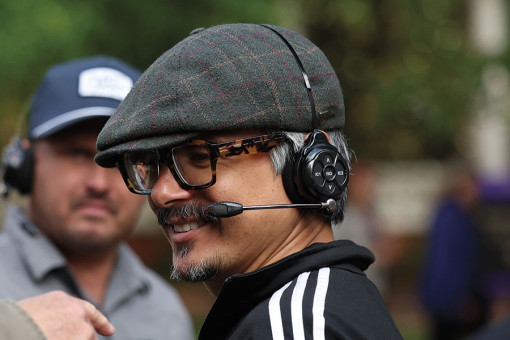Tim Kang may be known for playing no-nonsense cops, but his acting career started on a whim.
He was working in finance at the Pacific Stock Exchange in his native San Francisco when one day, he walked by the American Conservatory Theater and saw a sandwich board advertising night acting classes. It sounded like fun, so he signed up. Soon, he was hooked.
"I was on the floor making a trade, but my mind was on the monologue for the evening's class," Kang recalls. "I fell in love with acting and decided to apply to grad school."
He earned a master's of fine arts from the American Repertory Theater Institute at Harvard in 2001, then started booking commercials, guest spots on shows like The Sopranos and small roles in films like Two Weeks Notice.
A series of national gigs for AT&T, Cingular and Shell caught the attention of producers at CBS's The Mentalist, who soon cast him as agent Kimball Cho.
Contractual obligations had Kang working seven days a week during the first two months of The Mentalist; he'd be on set Monday through Friday, then catch a red-eye to Houston to shoot commercials on weekends.
After the show ended, he did guest shots on various series until he landed the role of detective Gordon Katsumoto on CBS's Magnum, P.I. When Magnum went on hiatus, he played a season as Ivan Hess on Freeform's Cloak & Dagger.
"I'm thankful for the opportunities I've had and always look for ways to give back," says Kang, who offers free acting classes to background actors on Magnum in Hawaii.
"So many Asian-American actors don't have opportunities because the roles aren't there. There's a ton of shows being produced now, so it's getting better, but it's not representative of what the country looks like."
To remedy that, Kang started his own production company, One Shoot Films, to develop diverse projects. He's also slated to direct a PSA for Ho`ōla Nā Pua, an organization in Hawaii that works to prevent sex trafficking and provides care for children who have been exploited.
Kang became an active supporter of the National Center for Missing and Exploited Children when his daughter's birth in 2009 led him to imagine a parent's worst nightmare.
"I sought them out and served as a spokesperson, but now I'm part of the team that strategizes how we attack the problem," he says. "This particular cause is hard for people to talk about. As an actor, I could put a face to certain things, but I wanted to do more."
This article originally appeared in emmy magazine, Issue No. 8, 2020












